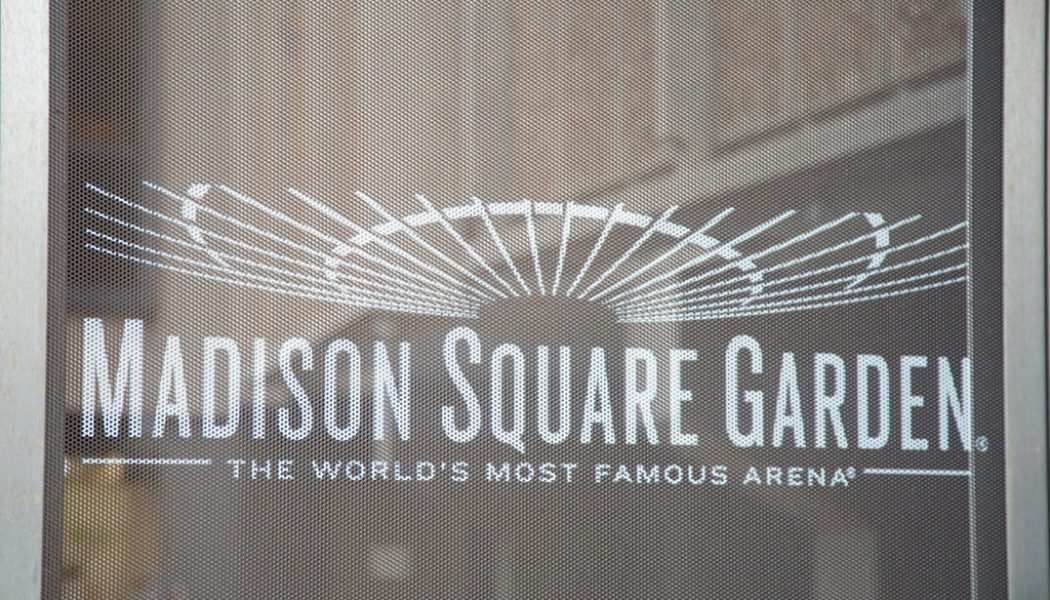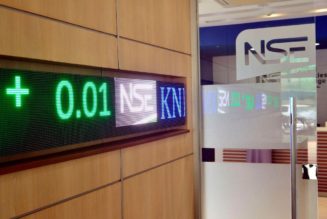
Crippled by venue closures, concert promoter MSG Entertainment’s fiscal fourth quarter revenue fell 96% to $9 million from $215.2 million for the same period a year earlier, according to financial results released Friday (Aug. 14). These aren’t the sort of numbers investors might have hoped for in the first full earnings report since MSGE spun off from the Madison Square Garden Company on April 20, but amid a pandemic that has shut down concerts since March perhaps there is some solace that this decline in revenue was still slightly better than the 98% drop Live Nation announced Aug. 5.
Shares of MSGE dipped 4.7% to $67.99 at the New York Stock Exchange on Friday. In all, MSGE’s revenue for the full fiscal year, from July 1, 2019, to June 30, 2020, fell 27% to $762.9 million from $1 billion the year prior.
MSGE’s portfolio of venues includes Madison Square Garden, Hulu Theater at Madison Square Garden, Radio City Music Hall, The Beacon Theater and others, and the company canceled this year’s Boston Calling music festival earlier this year and last week canceled its annual Christmas Spectacular production at Radio City Music Hall that was set to run almost daily from Nov 6 to Jan. 2, 2021.
Here are five takeaways from MSGE’s 8-K filing:
Misery is par for the course:
Near-zero revenue is not how MSGE wanted to report its first earnings as a standalone company. But live entertainment companies, after their doors were closed for the entire quarter, should be graded on an easy curve. After all, the shocking income statement is not MSGE’s fault. MSG Sports, now also a standalone company, fared even worse. With professional basketball and hockey suspended for the entire quarter, MSG sports had negative $7 million revenue compared to a positive $68.2 million in the same period in 2019.
In the quarter covering April 1 to June 30, MSGE reported a $103.5 million operating loss if two one-time items are removed: a $240.8 million gain on the $400 million sale of The Forum and a $105.8 million charge from writing down the carrying value of Tao Group, a hospitality company in which MSG acquired a majority stake in 2017 (before spinning off entertainment from the sports division).
Liquidity is in good shape:
MSGE has a comfortable amount of liquidity: $1.2 billion in cash and short-term investments, not including about $200 million in deferred revenues primarily from ticket sales and sponsorships for postponed concerts. The monthly cash burn is $25 million. The only long-term debt on its books is a $33.8 million term loan at Tao Group, for which the lender granted relaxed covenants from June 30 to the end of 2020.
At the same time, MSGE is “continually” seeking $500 million of debt financing to bolster liquidity and help pay for The Sphere at the Venetian venue in Las Vegas, said executive vp and CFO Mark Fitzpatrick during Friday’s earnings call.
Deep staff and cost cutting were inevitable:
The pandemic forced MSGE to reduce costs that will save $100 million over a 12-month period. Last week, MSGE laid off 350 employees, eliminated 50 job openings and reduced “non-essential” spending such as travel and expense and training, said Kirpatrick. At the end of May, it stopped supporting its 600 event-level employees at its venues. Also in the second quarter, the Tao Group let go essentially all of its venue staff and reduced its corporate headcount.
Expect the Sphere in three years now:
MSG will also save cash by lengthening the construction period of the MSG Sphere’s timetable, the company revealed in the earnings release. The MSG Sphere, originally planned to debut in 2021, is an ambitious project designed to have a “wow” factor: the 17,500-seat venue will have a 160,000-square-foot, wrap-around LED screen and cutting-edge audio technology. Now the expected open date is 2023 — but the pandemic’s uncertain economic effects means that is not etched in stone. Not content with one groundbreaking project at a time, MSGE has a second Sphere in London is in the early stages — but last November the company announced its production was delayed indefinitely from a 2022 launch. President Andrew Lustarten said during the earnings call that the Sphere in London will get planning approval in autumn 2020 at the earliest.
A few positive notes on 2021:
MSGE has “a backlog of live bookings for 2021 that’s twice the size of where it was this time last year,” said Lustarten. He added that 80% of ticket holders to postponed concerts opted to keep the tickets rather than require refunds (the same metric was 86% for Live Nation). As for the fan experience, Lustgarten said the company will modify the venue where necessary — e.g. capacity constraints — to make fans feel safe.










